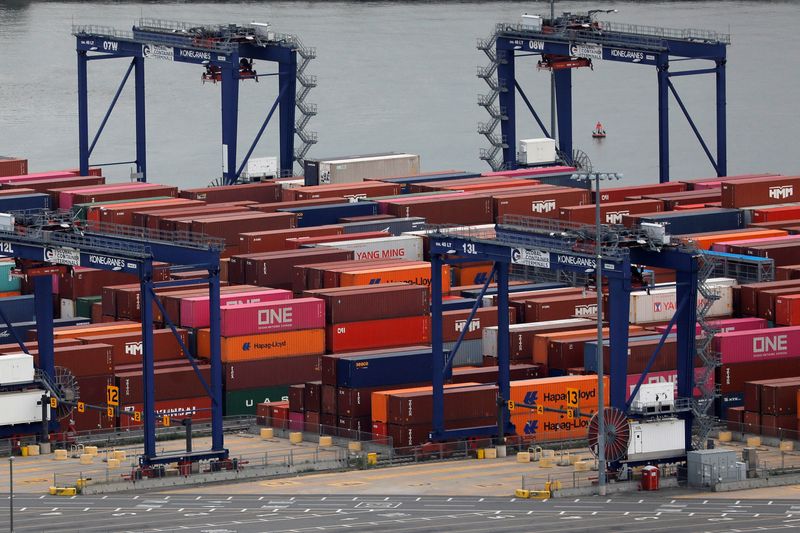
By David Shepardson and Jarrett Renshaw
WASHINGTON (Reuters) – Agriculture groups on Wednesday urged the White House to act to avert a potential strike that could begin on Oct. 1 at U.S. East and Gulf Coast ports that handle roughly half of the country’s ocean imports.
Dozens of groups including the American Farm Bureau Federation, Renewable Fuels Association and American Chemistry Council said “the time has come for the U.S. government to intervene and ensure port operations do not stop” in order to prevent damage to U.S. agriculture and the economy.
Republican Senator Ted Cruz raised concerns about the impact of a work stoppage, saying the U.S. “teeters on the brink of the first union strike among East and Gulf Coast ports since 1977.” He cited a JPMorgan analysis that projected a port strike could cost the U.S. economy $5 billion daily.
Negotiations between the International Longshoremen’s Association union and the United States Maritime Alliance (USMX) employer group appear to be deadlocked over pay as the Sept. 30 contract expiration approaches.
The White House did not immediately comment on the letter.
“We are monitoring and assessing potential ways to address impacts to U.S. supply chains related to operations at our ports, if necessary,” White House spokesperson Robyn Patterson said Tuesday, adding officials encourage continued negotiations “toward an agreement that benefits all sides and prevents any disruption.”
President Joe Biden’s administration has said the president does not intend to invoke a federal law known as the Taft-Hartley Act to prevent a strike.

A threatened strike by 45,000 ILA-represented workers at three dozen affected ports, including New York and New Jersey, Houston and Savannah, Georgia, would send delays and costs cascading through U.S. supply chains.
Approximately 40% of U.S. containerized agricultural exports move through East and Gulf Coast ports, the agriculture groups said.
This post is originally published on INVESTING.




